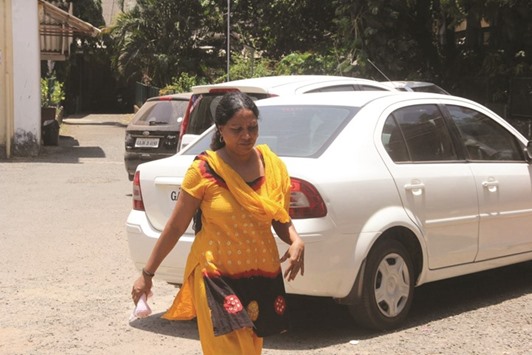A woman accused in the rape and human trafficking of a 16-year-old girl involving a Goa legislator surrendered to the police yesterday.
Rosy Feroor has been accused by the victim of selling her in March to independent legislator Atanasio Monserrate for Rs5mn in connivance with the girl’s mother.
Monserrate and the victim’s mother were arrested on Thursday and later remanded in police custody. Feroor, who was missing since the first information report was lodged by the police on Wednesday night, surrendered yesterday.
The former Goa education minister may be one of the first Indian lawmakers to be charged under recently enacted human trafficking legislation, the police said.
“We have charged him with various offences. These include drugging, sexual assault of a minor and trafficking,” a police officer involved in the investigation said.
The crime branch officer, who did not wish to be named, said Monserrate, a former member of main opposition Congress Party, has denied the charges and says conspiracy against him has been hatched by his political opponents.
The girl, who is from St Cruz - the constituency which Monserrate represents - told police her mother sold her to work for him, but that he kept her confined, gave her drinks laced with drugs and raped her several times.
India is home to more than 14 of the world’s 36mn victims of slavery, ranging from bonded labour to prostitution, according to the 2014 Global Slavery Index.
Activists in Goa estimate thousands of women and children from Nepal, Bangladesh, Thailand and from other Indian states are duped by traffickers into the coastal state, famed for its palm-fringed beaches and night life.
Many end up being exploited in brothels fronted by hotels, beauty salons, spas and bars or used in forced labour such as domestic work or in the hospitality industry.
Section 370, which was enacted after the fatal gang-rape of a young woman on a New Delhi bus in December 2012, broadens the definition of trafficking to include the buying or selling of a person as a slave and carries a jail term of up to seven years.
“Certainly this case is a test case because the person is a powerful politician. The investigation should be very precise and rely more on scientific and circumstantial evidence,” said Ravi Kant from Shakti Vahini, a Delhi-based anti-trafficking charity.
“Protection to witnesses in this case will be a big challenge for the prosecution. It has been seen that in cases involving powerful people, the victim and other witnesses can turn hostile.”

Rosy Feroor, the third accused in the rape and human trafficking of a teenaged girl, arrives at the Crime Branch office in Panaji yesterday.
